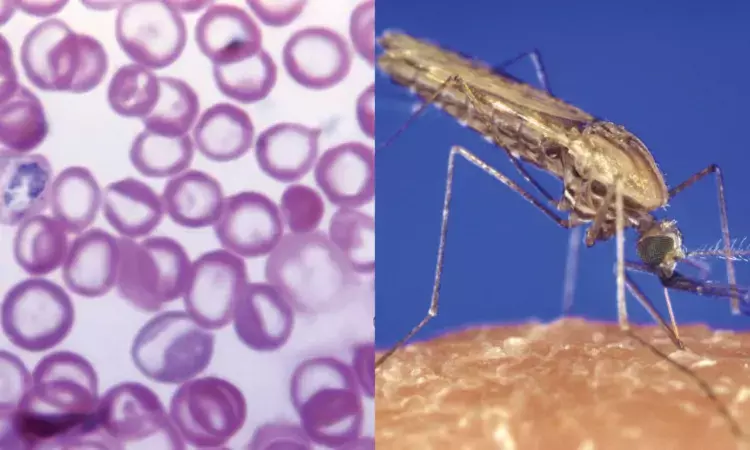- Home
- Medical news & Guidelines
- Anesthesiology
- Cardiology and CTVS
- Critical Care
- Dentistry
- Dermatology
- Diabetes and Endocrinology
- ENT
- Gastroenterology
- Medicine
- Nephrology
- Neurology
- Obstretics-Gynaecology
- Oncology
- Ophthalmology
- Orthopaedics
- Pediatrics-Neonatology
- Psychiatry
- Pulmonology
- Radiology
- Surgery
- Urology
- Laboratory Medicine
- Diet
- Nursing
- Paramedical
- Physiotherapy
- Health news
- Fact Check
- Bone Health Fact Check
- Brain Health Fact Check
- Cancer Related Fact Check
- Child Care Fact Check
- Dental and oral health fact check
- Diabetes and metabolic health fact check
- Diet and Nutrition Fact Check
- Eye and ENT Care Fact Check
- Fitness fact check
- Gut health fact check
- Heart health fact check
- Kidney health fact check
- Medical education fact check
- Men's health fact check
- Respiratory fact check
- Skin and hair care fact check
- Vaccine and Immunization fact check
- Women's health fact check
- AYUSH
- State News
- Andaman and Nicobar Islands
- Andhra Pradesh
- Arunachal Pradesh
- Assam
- Bihar
- Chandigarh
- Chattisgarh
- Dadra and Nagar Haveli
- Daman and Diu
- Delhi
- Goa
- Gujarat
- Haryana
- Himachal Pradesh
- Jammu & Kashmir
- Jharkhand
- Karnataka
- Kerala
- Ladakh
- Lakshadweep
- Madhya Pradesh
- Maharashtra
- Manipur
- Meghalaya
- Mizoram
- Nagaland
- Odisha
- Puducherry
- Punjab
- Rajasthan
- Sikkim
- Tamil Nadu
- Telangana
- Tripura
- Uttar Pradesh
- Uttrakhand
- West Bengal
- Medical Education
- Industry
High dose, short coure of Primaquine safely offers radical cure against P.Vivax in patients with G6PD activity: Lancet

Australia: A multicentre trial has shown high-dose short-course primaquine to be safe and relatively well-tolerated in patients with Plasmodium falciparum malaria. Primaquine also reduced the risk of subsequent P vivax parasitaemia within 63 days by fivefold. The findings were published online on November 15, 2023, in The Lancet.
An increased risk of P vivax parasitaemia following P falciparum malaria was seen in areas co-endemic for Plasmodium vivax and Plasmodium falciparum. Currently, the radical cure is recommended only for patients presenting with P vivax malaria. Expanding the indication for a radical cure to patients presenting with P falciparum malaria could lower their risk of subsequent P vivax parasitaemia.
Therefore, Kamala Thriemer, Menzies School of Health Research and Charles Darwin University, Darwin, NT, Australia, and colleagues aimed to assess the efficacy of a universal radical cure to lower the risk of subsequent P vivax episodes versus the current standard treatment for P falciparum, which entails schizontocidal treatment of blood-stage parasites plus a single dose of primaquine to eliminate the sexual parasite stages.
For this purpose, the researchers performed an open-label, multicentre, superiority randomised controlled trial (RCT) across five health clinics in Ethiopia, Indonesia, and Bangladesh.
Patients with uncomplicated P falciparum mono-infection having fever or a history of fever in the 48 h preceding clinic visit were eligible for enrolment and were required to have a glucose-6-dehydrogenase (G6PD) activity of 70% or greater. Patients received blood schizontocidal treatment (artemether–lumefantrine in Ethiopia and Bangladesh and dihydroartemisinin–piperaquine in Indonesia).
500 patients were enrolled and randomly assigned in a ratio of 1:1 to receive either high-dose short-course oral primaquine (intervention arm, n=246; total dose 7 mg/kg over 7 days) or standard care (standard care arm, n=249; single dose oral primaquine of 0·25 mg/kg). The study's primary endpoint was determined as the incidence risk of P vivax parasitaemia on day 63.
Based on the study, the researchers reported the following findings:
- The incidence risk of P vivax parasitaemia at day 63 was 11·0% in the standard care arm compared with 2·5% in the intervention arm (hazard ratio 0·20).
- The effect size differed with blood schizontocidal treatment and site.
- Routine symptom reporting on day 2 and day 7 were similar between groups.
- In the first 42 days, there were a total of four primaquine-related adverse events reported in the standard care arm and 26 in the intervention arm; 92% of the adverse events were mild.
- There were two serious adverse events in the intervention arm, which were considered unrelated to the study drug.
- None of the patients developed severe anaemia (defined as haemoglobin <5 g/dL).
"The findings showed that in patients who have a G6PD activity of 70% or greater, high-dose short-course primaquine radical cure was safe and led to a significant reduction in the risk of subsequent P vivax parasitaemia," the researchers wrote.
"Universal radical cure therefore potentially offers substantial public health, clinical and operational benefits, but these benefits will vary with endemic settings," they concluded.
Reference:
"Primaquine radical cure in patients with Plasmodium falciparum malaria in areas co-endemic for P falciparum and Plasmodium vivax (PRIMA): a multicentre, open-label, superiority randomised controlled trial," was published in The Lancet. DOI: https://doi.org/10.1016/S0140-6736(23)01553-2
Dr Kamal Kant Kohli-MBBS, DTCD- a chest specialist with more than 30 years of practice and a flair for writing clinical articles, Dr Kamal Kant Kohli joined Medical Dialogues as a Chief Editor of Medical News. Besides writing articles, as an editor, he proofreads and verifies all the medical content published on Medical Dialogues including those coming from journals, studies,medical conferences,guidelines etc. Email: drkohli@medicaldialogues.in. Contact no. 011-43720751


